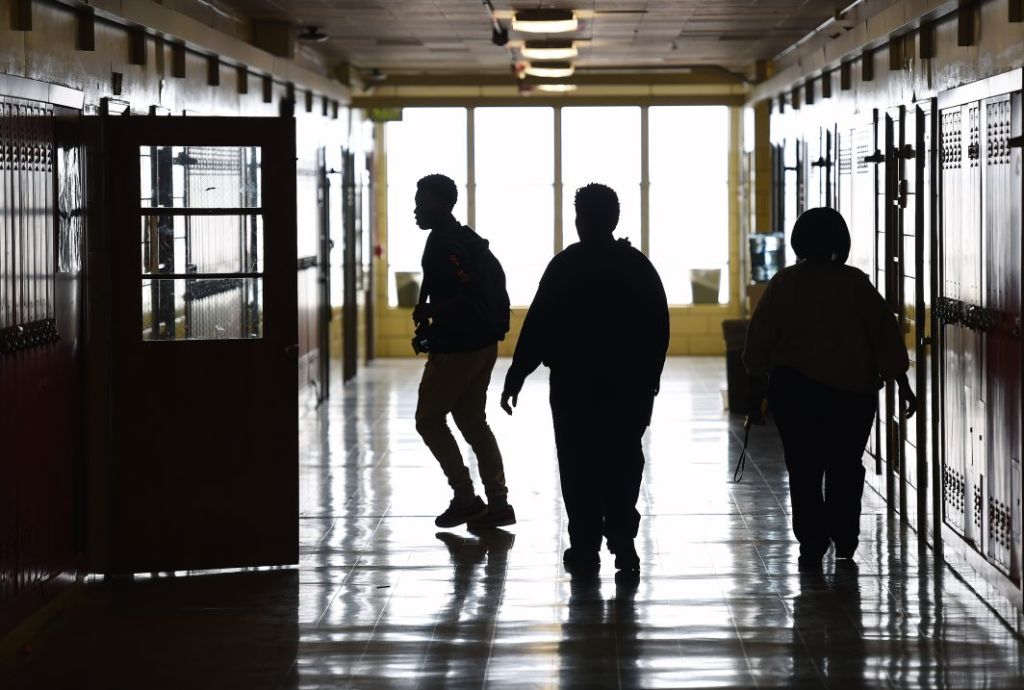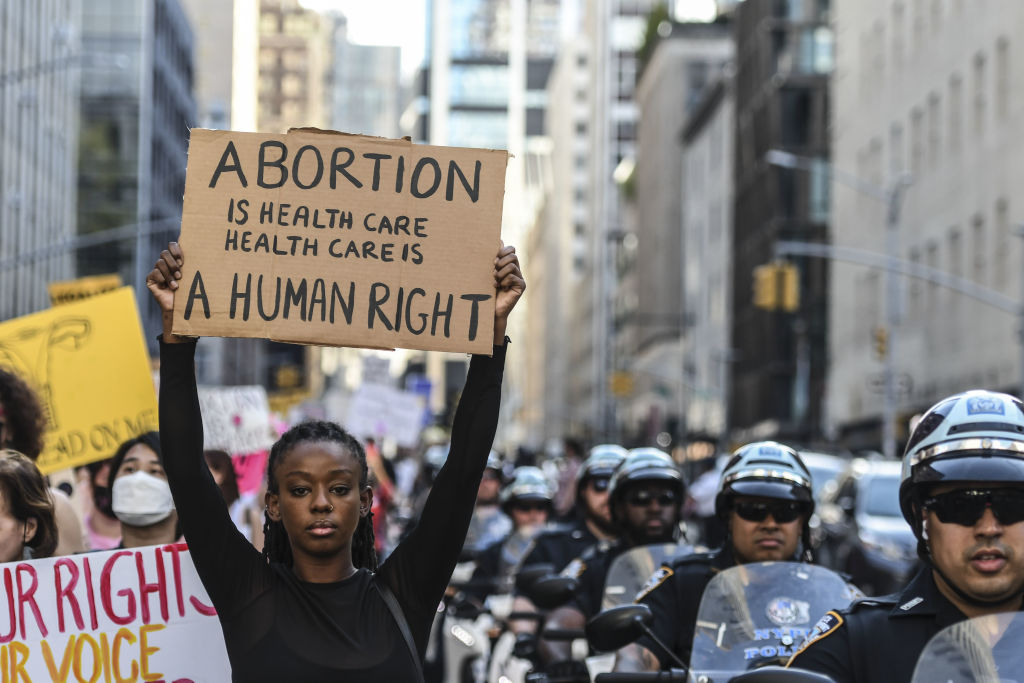Police-Free Schools Are Critical To Reproductive Freedom
OP-ED: Police-Free Schools Are Critical To Reproductive Freedom

Source: The Washington Post / Getty
On Friday, the Supreme Court leveraged the Dobbs v. Jackson Women’s Health Organization decision to strike down Roe v. Wade. This devastating ruling allows states to ban safe and legal abortion at any stage of pregnancy. It’s estimated that at least 26 states are certain or likely to ban abortion. Some states have even passed trigger bans, or laws that would ban abortion almost immediately after Roe is overturned. Banning abortion makes the provision of abortion care a felony offense.
Criminalizing abortion leads to criminalizing people for pregnancy outcomes. This is not new – police and district attorneys have already used laws across the country to arrest people and charge them with murder for experiencing pregnancy loss. Just a few months ago, a woman in Texas, where abortion is banned after six weeks, was initially arrested and charged with murder for allegedly self-managing her own abortion.
To achieve reproductive justice, we must fight for the human right to decide if and when to have a child and the conditions under which one will give birth, the human right to decide not to have a child and be afforded the options for preventing or terminating a pregnancy, and the human right to parent the children one has with the necessary social supports, in thriving communities.
Banning abortion is part of a more extensive web of reproductive oppression: the separation of families via the child welfare system; incarcerated pregnant people routinely being denied reproductive healthcare (including access to an abortion); and involuntary sterilization. It has always been about controlling and managing Black and Brown people, people with disabilities, immigrants, cisgender and transgender women, gender expansive people and all groups who continue to be oppressed, rather than safety and support.
While the Supreme Court expands gun rights and restricts reproductive justice, we know it’s not just about life but about who gets to decide whose life matters and how. But the fight for abortion access is also deeply tied to abolition. And the policing of our communities and schools is rooted in reproductive oppression and the denial of bodily autonomy.
Reproductive oppression is also tied to other forms of violence, including capitalism and white supremacy, that is at the foundation of our educational system. Police consistently enact violence on Black and Brown students, LGBTQ+ students, and students with disabilities, particularly in schools.
Schools frequently control students’ bodies with harmful practices such as racist, sexist and heteropatriarchal dress codes and restricting when and how often they can use the restroom. Additionally, schools largely fail to provide inclusive, comprehensive sex education that doesn’t use fear and shame tactics.
Through standardization and deficit-based curricula, schools also strip students of opportunities to build critical consciousness and understand the intuitive knowledge their bodies hold. Further, with current legislation that bans critical conversations about racism and oppression in schools, millions of students would not even be allowed to learn about the history that’s led to this moment or be able to discuss the Supreme Court ruling. It’s particularly important in light of how oppression undergirds the decision.
This country has long divested from communities and education while investing in policing infrastructure. Policing is insidious and woven into this society’s fabric as a means of maintaining structures and systems of oppression.
Police-free schools and communities involve a divestment from harmful systems such as the criminal legal system and an investment in the resources that our communities need. Similarly, the fight for abortion access is a push to divest from the systems that oppress us and an investment in our families and communities. That includes investing in comprehensive healthcare, abortion, and other reproductive healthcare services. Until this country divests from police and the policing mentality that denies bodily autonomy, we will never see freedom.
Briana Perry is the Director of Liberatory Learning and Capacity-Building for Communities for Just Schools Fund and Cierra Kaler-Jones, Ph.D. is the Director of Storytelling at Communities for Just Schools Fund. This national collaborative links philanthropy with the power of grassroots organizing to transform schools.
SEE ALSO:
Abortion Is A Personal Medical Decision, Texas Case Shows Harm From Criminalizing Pregnancy Outcomes
A Few Steps To Take After SCOTUS Dismantled National Threshold For Abortion Rights
Supreme Court Overturns Roe v. Wade To Make Abortion Unconstitutional



















